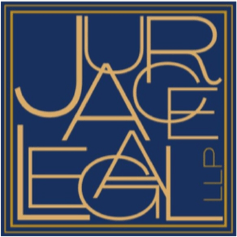In the landmark case of Prem Prakash Vs. Union of India through the Directorate of Enforcement, the Supreme Court of India ruled that statements made by an accused under custody in a case under the Prevention of Money Laundering Act (PMLA), which incriminate the accused in another money laundering case, are inadmissible as evidence. The Court clarified that such statements cannot be treated admissible under Section 50 of the PMLA.
Judgment Overview:
A bench consisting of Justices B.R. Gavai and K.V. Viswanathan made this significant pronouncement while granting bail to an accused in a money laundering case. The bench noted that while the accused was under custody in connection with one Enforcement Case Information Report (ECIR), his statements were recorded by the Enforcement Directorate (ED) officers in connection with another ECIR.
Key Legal Question:
The bench considered the legal question of whether statements recorded by ED officers for a new case in which arrest has not yet been made, and which are claimed to have incriminating materials against the accused, would be admissible under Section 50 of the PMLA when the accused is already in custody for another case investigated by the same agency.
Reference to Precedents:
The bench referred to the Supreme Court’s judgment in Vijay Madanlal Choudhary Vs. Union of India (2022), which held that statements recorded by ED officers under Section 50 of the PMLA are generally admissible in evidence. However, the Vijay Madanlal Choudhary judgment also recognized that the protection under Section 25 of the Indian Evidence Act, 1872—which makes confessions to police officers inadmissible—may apply on a case-to-case basis for accused persons facing prosecution under the PMLA.
Court’s Reasoning:
Justice Viswanathan, delivering the judgment, expanded upon this principle and referred to Justice V.R. Krishna Iyer’s ruling in the Nandini Satapathy case, which discussed the state of mind of a person under custody. The bench questioned whether the vulnerable position of the accused, coupled with the dominant position of the investigating agency, created an environment conducive to obtaining a confession. The Court concluded that this scenario raised concerns of fairness and justice, making it unsafe to consider such statements admissible.
The judgment emphasized that a person in custody under PMLA is not operating with a free mind, and therefore, any statement made under Section 50 to the same investigating agency cannot be considered admissible. The bench underscored that allowing such statements would contravene principles of fair play and justice.
Procedural Safeguards:
The Court further held that a person in judicial custody cannot be summoned by the ED without the permission of the Court that has remanded them to custody in the other case. This is essential to ensure that the rights of the accused are not infringed.
Impact of the Ruling:
On the facts of the case, the Court found that the statement of the accused was protected by Article 20(3) of the Indian Constitution, which guarantees the right against self-incrimination, as the statement was made while the accused was in judicial custody in connection with another proceeding initiated by the same investigating agency. The Court noted that it would be unjust to consider the statement admissible against the accused in the current proceedings.
The Court concluded that the statement made by the appellant under Section 50 of the PMLA cannot be used in the present ECIR, even though the appellant was in custody in another ECIR. The ruling affirms the importance of safeguarding the rights of individuals in custody and maintaining the integrity of the legal process.
Disclaimer: This article is for informational purposes only and does not constitute legal advice. The content may not reflect the most current legal developments and is not guaranteed to be accurate, complete, or up-to-date. Readers should consult a qualified legal professional before taking any action based on the information provided. The authors and publishers disclaim any liability for any loss or damage incurred as a result of reliance on this article. This article does not create an attorney-client relationship.

